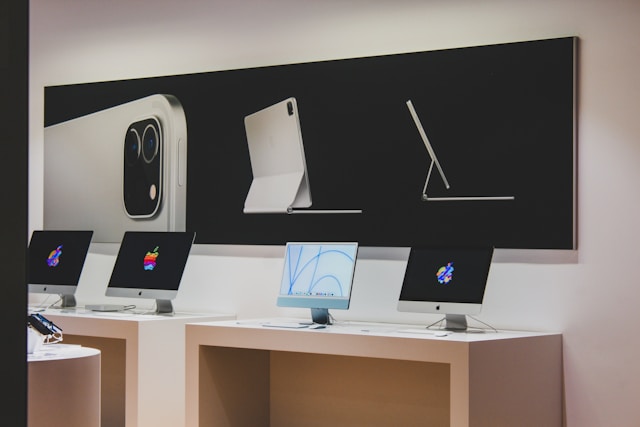Apple OS Rebranding in 2025 Arrives as Strategic Pressures Intensify

Apple is preparing to launch a major rebranding overhaul across its software platforms by renaming its operating systems by calendar year, starting with iOS 16, macOS 16, and related updates. This Apple OS Rebranding 2025 strategy is set to be revealed at next month’s WWDC 2025.
This cosmetic change comes at a time when the company’s core strategy is facing mounting pressure. Last week, the company faced intensifying scrutiny on multiple fronts, including generative AI development, antitrust compliance, and geopolitical risks.
Apple’s Moving From Sequential to New Calendar-Based OS Naming Scheme
Apple is looking to retire its traditional sequential numbers in favor of year-based labels, which means iOS 18 will give way to iOS 26 instead of iOS 19, named after the 2026 calendar year.
This new naming scheme will trickle down and be aligned across all major platforms – iPadOS, watchOS, macOS, tvOS, and visionOS.
This new naming strategy will be announced by Apple at the Worldwide Developers Conference 2025 alongside new AI features and updates across its device ecosystem.
Apple is aiming to simplify product positioning and unify naming conventions across platforms. However, this shift is a strategic branding reset – a move that reframes Apple’s software narrative at a time when its innovation credentials are being questioned.
Questioning the Logic and the Timing
The Apple OS rebranding plan has raised eyebrows within the tech community. While Apple argues that its strategy will bring consistency, critics warn that it introduces a different kind of confusion.
Moreover, the jump from iOS 18 to iOS 26 signals more disruption than it delivers. Expectations for a dramatic overhaul could backfire if the software changes are modest in scope.
For enterprise IT and developers, version numbers aren’t just marketing, they govern support cycles, security updates, and app compatibility. A year-based naming system without clear practical benefits may hinder clarity rather than enhance it.
Apple’s Broader Strategic Tensions: AI, Legal, and Global Competition
This naming rebrand also lands in the shadow of a bruising week for Apple’s executive leadership. Each day brought new headlines that collectively painted a picture of a company under strain:
- AI Lag Exposed: There was an exposé citing former Apple employees who described the company’s artificial intelligence development as fragmented and delayed, leaving rivals such as Google, Microsoft, and OpenAI.
- Epic Games Litigation Pressure: A federal judge warned Apple could violate previous antitrust rulings tied to its App Store Policies.
- Market Cap Losses: Microsoft reclaimed its position as the world’s most valuable company after unveiling AI integrations across its platforms, pushing Apple to second place.
- Symbolic Talent Blow: Former Apple design chief Jony Ive’s firm was acquired by OpenAI for $6.5 billion, fueling speculation that top design innovation may be shifting away from Cupertino.
- Hardware Delays and Tariff Threats: Apple has planned to launch new AI hardware in late 2026. Meanwhile, Donald Trump’s proposed 25% tariff on non-U.S.-manufactured iPhones triggered a 2% drop in Apple shares, erasing $60 billion in market value.
WWDC 2025: A High-Stakes Pivot
Next month, all eyes will be on Apple’s WWDC, where the company will need to do more than rebrand its operating systems. The company is expected to showcase a suite of AI-powered updates across iOS, iPadOS, and macOS, with particular focus on how it plans to integrate generative AI into Siri, messaging, and productivity tools.
The software renaming, once seen as a straightforward refresh, may now serve a dual purpose: to divert attention from stagnation and to reset perception around innovation even as the underlying competitive and regulatory pressures mount.
A Name Alone Won’t Solve Apple’s Challenges
While the Apple OS rebranding in 2025 may unify branding across its platforms, the move does little to address the core issues facing the company, from lagging AI performance, regulatory scrutiny, geopolitical uncertainty, and intensified competition from other tech giants.
Whether iOS 26 and its siblings mark a new era or simply repurpose old software remains to be seen – and will depend entirely on what Apple delivers in substance, not just in name.
Follow us on WhatsApp, Telegram, Twitter, and Facebook, or subscribe to our weekly newsletter to ensure you don’t miss out on any future updates. Send tips to editorial@techtrendsmedia.co.ke


